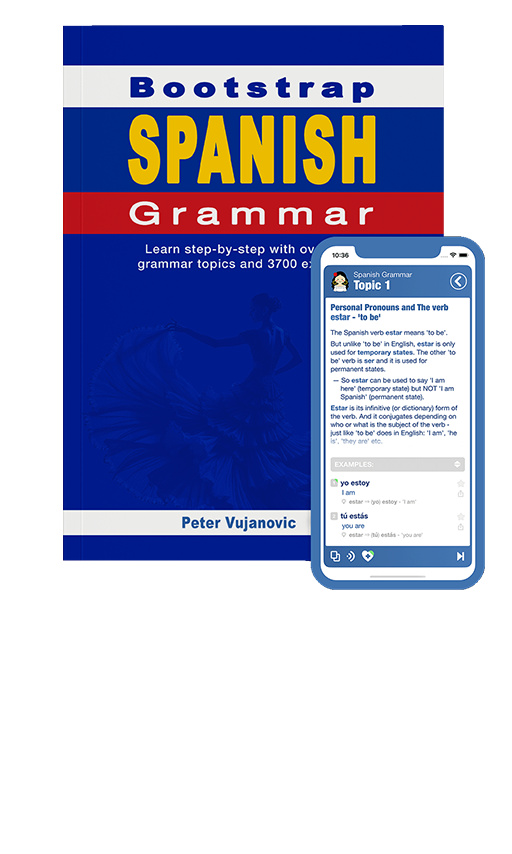Spanish grammar - To want' - the verb querer |
|||
|
|||
The verb querer means 'to want'. Querer is an irregular verb, so its conjugations do not follow regular patterns. Its present tense conjugations are as follows: • yo quiero - 'I want' • tú quieres - 'you (familiar) want' • él, ella, usted quiere - 'he, she, you (formal) want(s)' • nosotros, nosotras queremos - 'we want' • vosotros, vosotras queréis - 'you all (informal) want' • ellos, ellas, ustedes quieren - 'they, you all (formal) want' Note that querer also means 'to love' when referring to people. |
| Examples: | |
|
yo quiero
I want
|
|
|
tú quieres
you (informal) want
|
|
|
él quiere
he wants
|
|
|
ella quiere
she wants
|
|
|
usted quiere
you (formal) want
|
|
|
nosotros queremos
we want
|
|
|
nosotras queremos
we (feminine) want
|
|
|
vosotros queréis
you all (informal) want
|
|
|
vosotras queréis
you all (informal, feminine) want
|
|
|
ellos quieren
they want
|
|
|
ellas quieren
they (feminine) want
|
|
|
ustedes quieren
you all (formal) want
|
|
|
Yo quiero un hombre guapo y rico.
I want a handsome and rich man. |
|
|
¿Tú quieres el arroz?
Do you want the rice? |
|
|
¿Quién quiere un trozo de pizza?
Who wants a piece of pizza? |
|
|
¿Pedro quiere una caña de cerveza?
Does Pedro want a can of beer? |
|
|
¿Por qué usted quiere una computadora cara?
Why do you (formal) want an expensive computer? |
|
|
Ellas quieren una taza de café.
They (females) want a cup of coffee. |
|
|
¿No quieren ellas una jarra de agua?
Don't they (females) want a jug of water? |
|
|
¿Quiere usted un café, señor?
Would you (formal) like (do you want) a coffee, Sir? |
|
|
Sí, quiero un café con leche, gracias.
Yes, (I) would like a 'café con leche', thank you. |
|
 |
|



